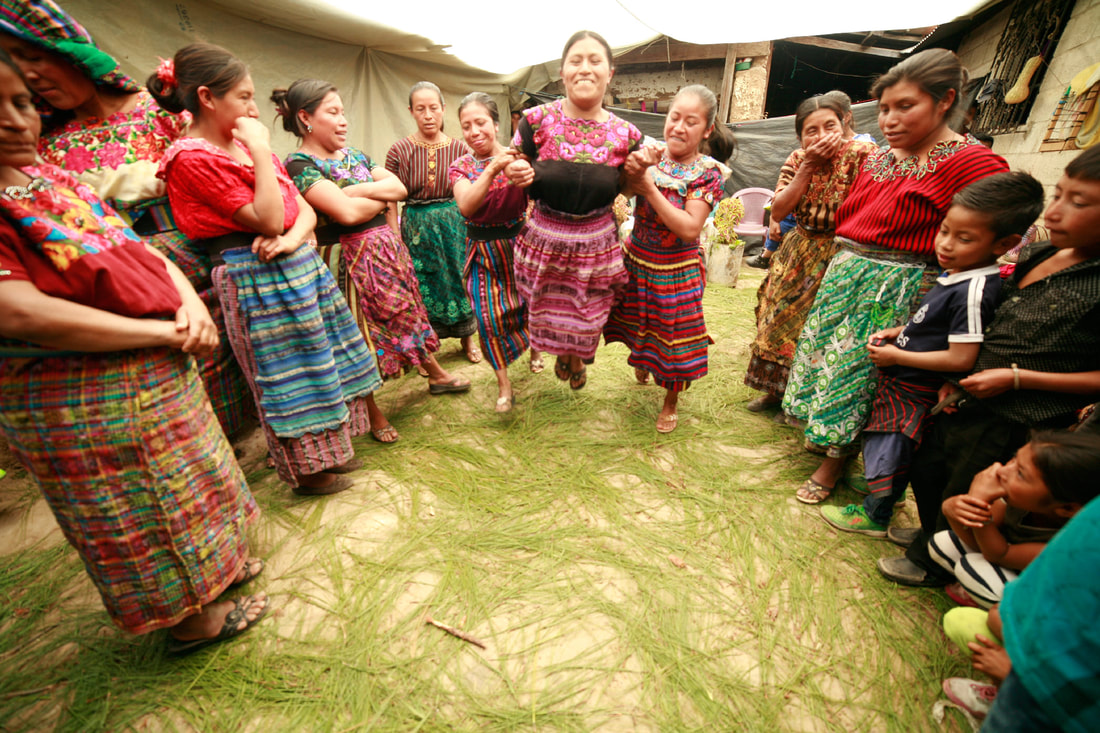Gender Mainstreaming
According to the United Nations, Gender Mainstreaming is:
“a globally accepted strategy for promoting gender equality. Mainstreaming is not an end in itself but a strategy, an approach, a means to achieve the goal of gender equality. It involves ensuring that gender perspectives and attention to the goal of gender equality are central to all activities—policy development, research, advocacy/ dialogue, legislation, resource allocation and planning, implementation and monitoring of programs and projects.”
Mujerave works within the paradigm of Gender Mainstreaming across its projects, from the needs assessment phase to project implementation, through to monitoring and evaluating. Mujerave recognizes the critical role women play in indigenous communities as couriers of knowledge and experts in a broad range of arenas including, but not limited to, the following: the transmission of indigenous language and cultural knowledge; infant, maternal, and family health; resource availability/scarcity; traditional and medicinal plants and their uses; crop cultivation for family consumption; weaving and the manufacture of textiles and its role in cultural preservation; local ecosystems; and animal husbandry.
Due to longstanding patterns of systematic oppression and exclusion, women's voices are seldom represented at tables where policy decisions are made in indigenous communities in Guatemala. Furthermore, they’re often excluded from the planning and implementation of development projects, even projects built to meet the needs of women.
Mujerave seeks to reverse this trend through the following specific strategies:
“a globally accepted strategy for promoting gender equality. Mainstreaming is not an end in itself but a strategy, an approach, a means to achieve the goal of gender equality. It involves ensuring that gender perspectives and attention to the goal of gender equality are central to all activities—policy development, research, advocacy/ dialogue, legislation, resource allocation and planning, implementation and monitoring of programs and projects.”
Mujerave works within the paradigm of Gender Mainstreaming across its projects, from the needs assessment phase to project implementation, through to monitoring and evaluating. Mujerave recognizes the critical role women play in indigenous communities as couriers of knowledge and experts in a broad range of arenas including, but not limited to, the following: the transmission of indigenous language and cultural knowledge; infant, maternal, and family health; resource availability/scarcity; traditional and medicinal plants and their uses; crop cultivation for family consumption; weaving and the manufacture of textiles and its role in cultural preservation; local ecosystems; and animal husbandry.
Due to longstanding patterns of systematic oppression and exclusion, women's voices are seldom represented at tables where policy decisions are made in indigenous communities in Guatemala. Furthermore, they’re often excluded from the planning and implementation of development projects, even projects built to meet the needs of women.
Mujerave seeks to reverse this trend through the following specific strategies:
- Assessing community and family health needs primarily through women's groups
- Capitalizing on the expertise of local women at every phase of project execution
- Maintaining gender equality within boards of directors and advisors
- Promoting gender equality at local and regional political levels through capacity building with women’s groups
